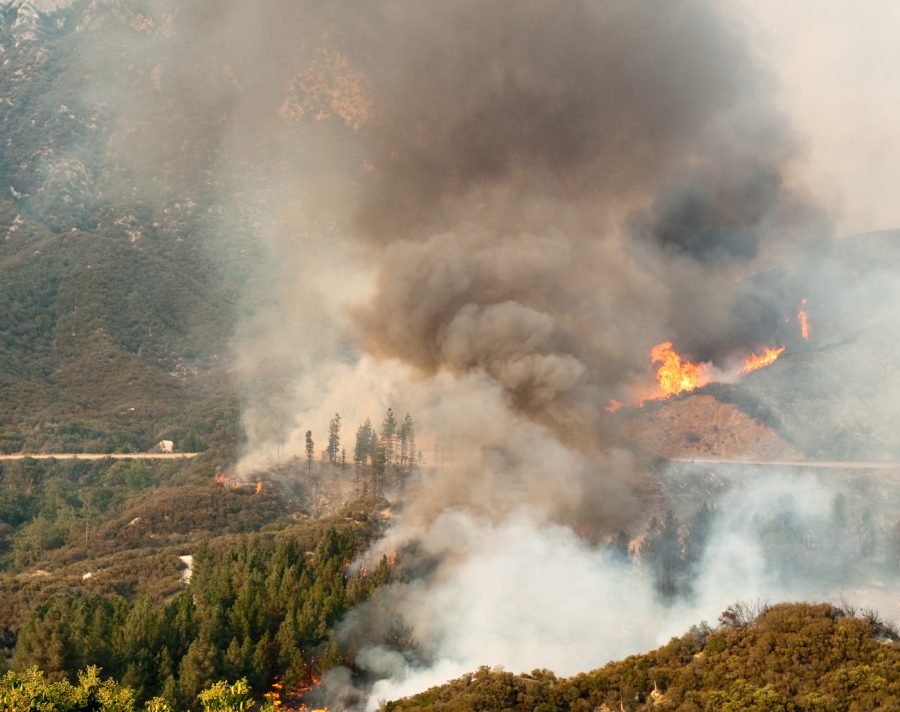How Wildfires Affect Us and Our Health
November 3, 2020
In the summer of 2020, people with respiratory illnesses, and even healthy groups, have been affected greatly due to the tragic wildfires that have transpired. A mixture of different causes, one being the scolding temperatures in California, and another being people’s arrogance to the environment.
I interviewed my best friend, Samantha Robles, who has dealt with asthma from a young age, and asked her some important questions I had about this topic. My first question was, how have the fires made you feel physically?
She responded by stating, “The fires have made my chest tight and have made me constantly feel anxious.” People suffering from asthma may need to seek medical attention if symptoms caused by fires include coughing, wheezing, and difficulty breathing or in more severe cases bronchitis.
The next question I asked Samantha was, what are some precautions you think people should take before going outside?
She answered, “Any people with respiratory issues such as asthma should take any required medications to prevent the air from triggering their illness.”Anyone with lung diseases should follow the advice given by their doctors on their respiratory management plans and should immediately call their doctors if symptoms get worse. Elderly people or people with respiratory diseases,” are the groups who suffer the most. Sensitive groups such as people with asthma (or any respiratory illness), the elderly, and children can be seriously affected by the particles emitted by wildfires. Wildfires have a great risk of affecting children because not only do they spend a majority of the time outdoors, but their respiratory systems are not fully developed so they require to breathe in more air than adults. As well as the elderly are affected by pollution because of the fact that they are already at high risk for illnesses having to do with their lungs and heart.
According to an article by Saccounty News, “People with heart and lung disease, older adults and children are at greater risk and should limit prolonged or heavy outdoor exertion.”I then asked Samantha, do you have any respiratory problems that the fires have made worse? She uttered, “Other than asthma, I had developed bronchitis around three weeks ago that was super difficult to deal with due to the fires. It took a very long time for the antibiotics to kill the infection, so it was very frustrating.” Particles from fires are very small, which is why it is very easy for them to get stuck deep inside your lungs and irritate them.
After, I asked her if she has avoided going outside because of the air quality. She quickly spoke and said, “Yes I have because I knew that if I kept going outside, my condition would worsen.” Staying indoors and keeping the air clean(using an air conditioner)is the best way to limit exposure to smoke. At the end of the interview, we discussed what could be the outcome of sensitive individuals breathing in this pollution. Samantha explained that, “(i)f sensitive individuals breathe in the pollution that the fires create, they can have a wide variety of issues both long and short term that may harm their respiratory systems.”Short-term, pollution in the air can cause flare-ups or other symptoms; long term, it can increase the risk of other fatal diseases such as cancer.

